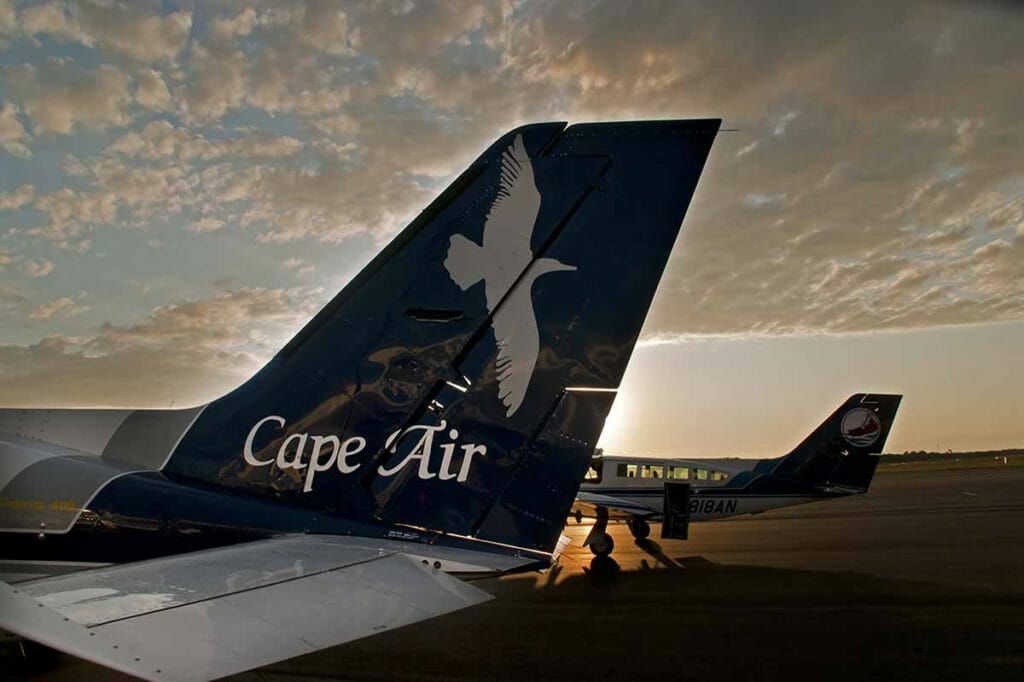
Cape Air Then and Now
Headquartered in Hyannis, Massachusetts, and operating in 40 of the most beautiful and diverse destinations across the United States, Caribbean and Micronesia, Cape Air is the largest independent regional airline in the United States. The employee-owned company has a unique culture which is embraced by its 1,100+ employees and sought after by future aviators. The Hyannis based carrier started its engines in 1989 flying a single route between Provincetown, MA and Boston, MA three times daily. The airline now operates three types of aircraft, and offers up to 525 flights a day. Passenger numbers have grown to 674,000 annually across five regions, the Northeast, Midwest, Montana, Caribbean and Micronesia. While the once “mom and pop” airline has seen consistent, healthy growth over the past 27 years, it has managed to maintain its friendly small town feel while performing as a world class operator.
As Cape Air continues its growth, it is vital to add new employees who share in the same passion for success, aviation, quality customer service and safety. That growth has also led to increased opportunities in flight ops, tech ops, airport services, finance and administration. The unique employee-ownership structure has created an environment that requires engaged, devoted and innovative team members who think and act “like an owner.”
Cape Air puts a priority on quality of life and corporate culture. A major benefit to joining the Cape Air family as a pilot is the luxury to be based at home, with the hassle of commuting on days off not being required. All pilots have the opportunity to live in their bases, which allows for less time away from the ones that matter most. Pilots can put down roots in their communities and build a future for themselves and their families.
Cape Air Fleet
The Cape Air fleet currently consists of eighty-four Cessna 402s, two ATR-42s and four Britten-Norman Islanders. For several years, Cape Air has been focused on the next generation of aircraft, one that fits both the needs of the operation, and the customers. The senior leadership team has worked diligently with Italian manufacturer Tecnam on the P2012 Traveller – a potential replacement for the Cessna 402. Dan Wolf, Cape Air’s Founder and CEO, had the opportunity to fly the Traveller in November of 2016 and offered, “This aircraft is so easy to fly. With the performance numbers we see today we would be happy to offer our customers a new generation airplane that will both raise the level of in-flight comfort and safety and lower the costs of operations and fleet maintenance.”
Pathways to Piloting Your Career
There has never been a more opportune time to streamline your career as a pilot. With the national pilot shortage upon us, the industries doors are open and opportunities are around every corner. Every pilot’s career path and goals are as unique as the individual who aspires to achieve them. The Cape Air team has worked hard to create various pathways and partnerships for today’s pilots. Through partnerships with universities, colleges and partner airlines, Cape Air offers its pilots a proven pathway to the majors, while providing hands on training and valuable flight experience.
Cape Air offers pilots a direct pathway to individual success through multiple channels. Whether you’re a Cape Air employee with a passion for aviation and a desire to become a pilot, an undergraduate student currently in an aviation program, a current pilot looking for a change of pace, or even a retiree from a major airline with a desire to still fly, Cape Air has a proven pathway program that can meet both your wants and needs as a pilot.
JetBlue University Gateway Program
The University Gateway Program provides a unique pathway for undergraduate students looking to seamlessly transition from student to professional aviator. Students from an Aviation Accreditation Board International (AABI) accredited program are eligible to enter the Gateway Program during their sophomore year. The program offers structured education, training and experience, preparing each pilot for their future in aviation. Undergraduate pilots in the program have the opportunity to work as interns at either Cape Air or JetBlue. After graduation, they gain valuable hands on experience as university flight instructors. Once the student reaches their required calendar commitment at the university (usually 1 year of flight instructing), they join Cape Air as a Captain for a 2-3 year commitment. After that commitment is met, the pilot is scheduled for their Jet Transition Course and final interview with JetBlue. Recent graduates of the program obtained their Captain rank within three years of joining JetBlue.
The University Gateway Program currently exceeds 350 students at six colleges (seven campuses) across the country.
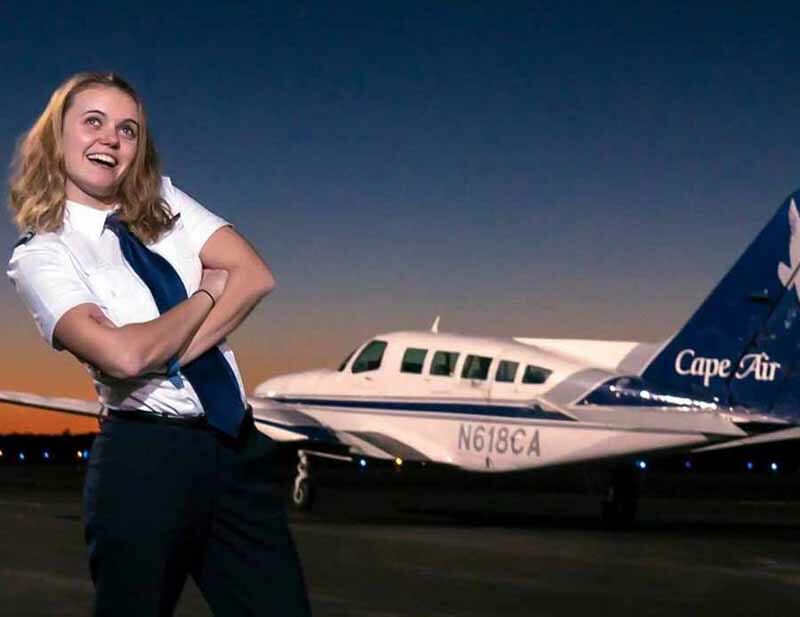
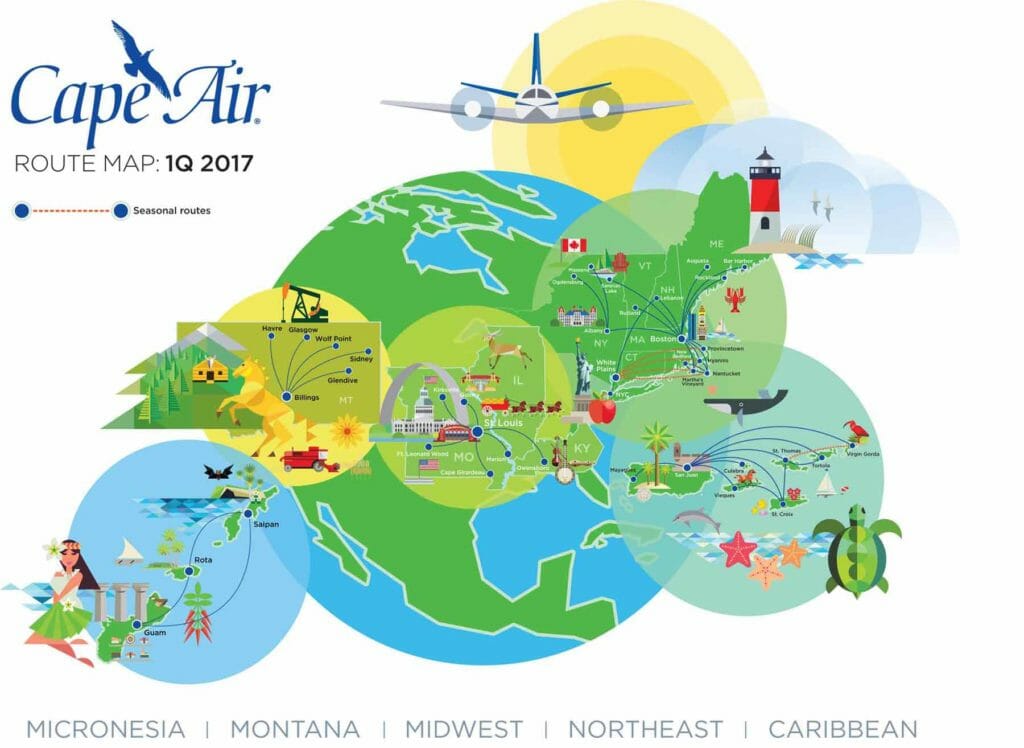
Cape Air currently partners with the following Universities for the Gateway Program:
- Bridgewater State University
- Embry-Riddle Aeronautical University – Daytona and Prescott Campus
- University of North Dakota
- Jacksonville University
- Auburn University
- Inter American University
Another aspect of the University Gateway program is the Advanced Gateway path. Similar to the traditional and original model, this program allows graduates of an AABI program to join Cape Air and eventually transition to JetBlue after completing similar gates.
View the Careers in Aviation video posted by ISTAT featuring JetBlue First Officer Shanti Merriman. Shanti was one of the first graduates of the Cape Air-JetBlue University Gateway Program.
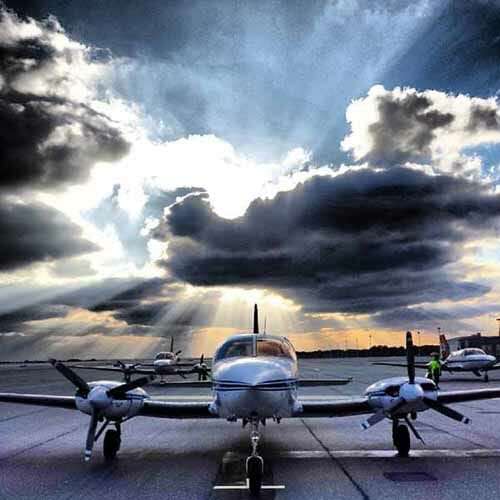

Approaching retirement but still have a passion to fly commercially?
Cape Air Gray Gulls
The “Gray Gulls” program is designed to give experienced pilots the opportunity to continue flying scheduled air service after the age of 65. Being primarily a CFR Part 135 scheduled air carrier, age is not a factor, only the ability to maintain a First Class Medical. Cape Air currently has retired pilots flying lines from almost every major carrier. There are three ways you can become a Gray Gull, and keep your flying career active:
Full-Time: Pilots bid on a base by seniority, with the potential to base in any one of Cape’s twenty-nine pilot bases. Pilots likely work a 4-on 3-off schedule (minimum 12 days off per 28) of about 40+ hours a week with overtime available.
Part-Time: Cape Air lists bases where part time pilots are required. Pilots are scheduled in advance in the base for less than 30 hours per week. This status can be held seasonally in some bases as well. (You are on the seniority list for your first year; you will qualify for CASS privileges but dependent on your hours worked you may or may not qualify for certain company benefits.)
On-Call: The pilots base is mutually agreed upon, with placement typically being in Cape Air hubs (Billings, MT, St Louis, MO, Hyannis, MA and Boston, MA), with the potential to be seasonally based in a few of our smaller locations. Pilots submit a minimum of five days availability per month – three days must be consecutive and covering a weekend. Gray Gulls are eligible to pick up additional time at their leisure. (Pilots accrue seniority for up to twelve months, and are eligible for CASS privileges but not company benefits.)
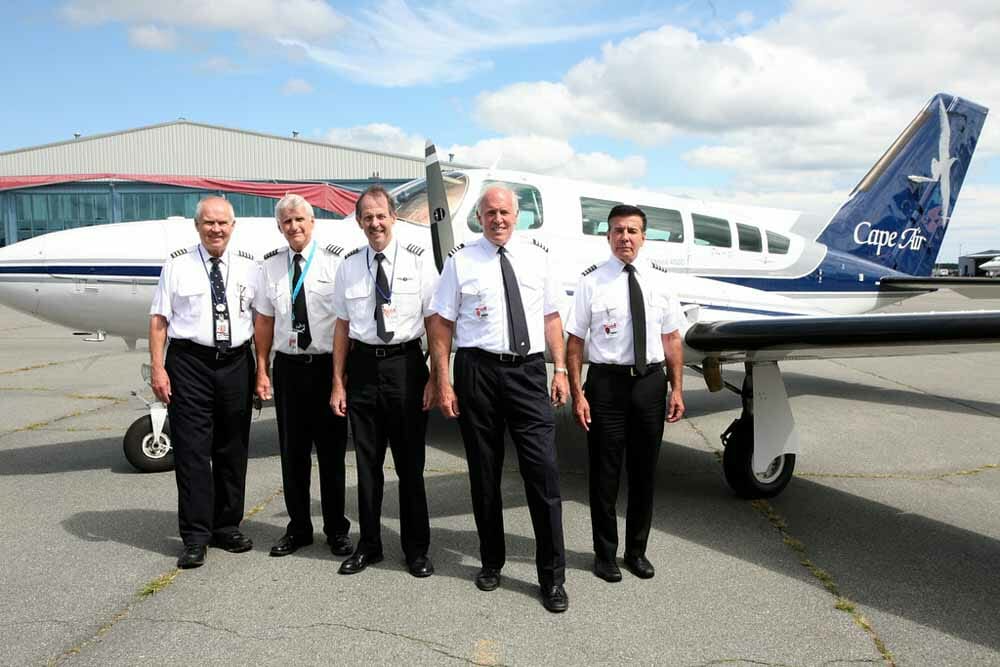
In all scenarios, Gray Gulls are responsible for housing in their base. However, if a temporary duty vacancy (TDY) line exists, and the pilot chooses to cover the line, a hotel room and per diem are provided out of base.
Training takes place in Hyannis, MA and lasts approximately 5-6 weeks. During training, pilots are provided a single occupancy hotel room and paid a minimum of 40 hours per week. This is the only full-time commitment required of On-Call or Part-Time Captains.
Internal Gateway Program
Cape’s Internal Gateway Program was established to offer support to Cape Air employees with a desire to pursue careers as professional pilots. An eligible employee is someone who for reasons beyond his/her control has had to discontinue their flight training. Employees interested in joining the Internal Gateway Program must meet the following requirements:
- Be a full time employee in good standing for at least one year
- Eligible to work in US
- Receive a favorable recommendation from your manager or supervisor
- Receive a recommendation from a Captain at Cape Air
- Complete the Internal Gateway Application
- Successfully complete a Cape Air pilot interview
- Possess a FAA issued Private Pilot Certificate with Instrument privileges or higher
- Sign a promissory note regarding your time and financial commitment to Cape Air
For more information on any of Cape Air’s Pilot Pathway Programs visit www.capeair.com/careers . For inquiries, email pilotjobs@capeair.com or contact the Pilot Recruitment team via phone at 508.827.7883.
Wear Your Wings With Pride!
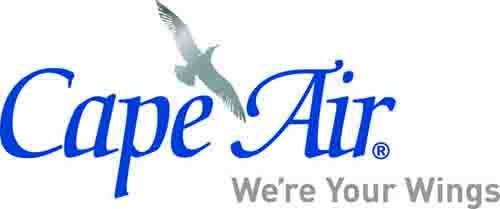
Fast Facts:
Headquarters: Hyannis, Massachusetts
Year Founded: 1989
Number of employees: 1,100+
Number of Aircraft: 84 Cessna 402s, 2 ATR-42s and 4 Britten-Norman Islanders
Number of Pilots: 204
Most Junior Captain Hired: ATP Minimums
Number of Bases: 30
Bases:
- Cape Cod and Islands
- Hyannis
- Provincetown
- Martha’s Vineyard
- Northeast
- Boston
- New Bedford
- Rutland
- Lebanon
- Rockland
- Augusta
- Bar Harbor
- Massena
- Ogdensburg
- Saranac Lake
- Midwest
- St. Louis
- Cape Girardeau
- Fort Leonard Wood
- Kirksville
- Marion
- Owensboro
- Quincy
- Montana
- Billings
- Caribbean
- San Juan
- St. Thomas
- St. Croix
- Tortola
- Vieques
- Culebra
- Mayagüez
- Micronesia
- Guam
Number of Cities served: 40
Key Benefits: Employee-owned company with profit sharing, Full-time and Part-Time positions available Paid company FAA medical benefit, CASS jump seat approval, Known Crew Member access, 401K matching, 8 paid holidays for full-time and part-time employees, Wellness benefit, Vacation accrual, Paid sick leave, Company paid uniforms after 1 year
Website www.capeair.com
Phone – 508-827-7883
Facebook – facebook.com/CapeAir
Twitter – twitter.com/CapeAir
LinkedIn – linkedin.com/company/cape-air
Instagram – instagram.com/capeair
YouTube – youtube.com/channel/UCjdbj_0K0p6hEFfoe7jJQ8Q
JetBlue YouTube – youtube.com/watch?v=6g1gdFJvHHM&feature=youtu.be
Interview with Craig A Bentley Senior Vice President Pilot Sourcing and Industry Relations, Cape Air
Pre Interview:
Craig: How do you select applicants to be brought in for an interview?
Craig: We review submitted applications and resumes to find candidates that meet our requirements. Once a candidate gets asked to attend an in-person interview, our goal is to really assess if he/she has the level of knowledge, commitment, integrity and appreciation for our core values, and ultimately, would be a good fit for us.
C: What can an applicant do to increase their chances of being called for an interview?
C: The most important factor is if the applicant meets our minimum requirements, which we detail on our pilot careers portal at capeair.com. Also, it may seem inconsequential, but we also review to see how thorough the application responses are, and if correct spelling is used. It just shows the applicant was more mindful to details.
C: How critical is it to attend a job fair to get an interview?
C: This is not critical, but certainly can be helpful. We do several events a year, and it’s always great to have one-on-one time with an applicant. However, if a potential candidate can’t make these events because of academic or personal commitments, we want to provide an alternate channel for them to get to know us, and vice-versa. This is why the written application process, and the thoroughness of that application is so important.
C: What is the best way to prepare for an interview with your company?
C: Do some research on our history. Each applicant should have knowledge on our core values, where we operate and the type of equipment we operate. It’s always impressive if the applicant demonstrates that they put an effort in to learn about the company, know who serves as our CEO, who is our President, where we fly.
Interview:
C: Do you recommend that applicants get to your headquarters city the day before and get a hotel room for the night?
C: We help arrange travel to/from the interview. If needed, we will provide a hotel room and car service for the applicant to get to our headquarters in Hyannis, MA. We offer up to $200 for airfare \reimbursement to fly into Boston.
C: Can you walk me through a typical day of interviews?
C: The day starts with a meet and greet with a pilot recruiter. From there, a series of interviews with other members of the flight leadership team take place. Typically we conduct a tour of our headquarters location, provide a lunch if the timing fits, and give the applicants a chance to discover more about Cape Air from all facets of the organization.
C: What kind of questions can an applicant expect to be asked?
C: Applicants will be asked to display their knowledge on our company, core values, equipment we fly, leadership questions and technical questions related to general multi-engine operations. He/she will also be expected to provide an overview of their work history and challenges they have encountered. Because of our commitment to safety, we cover safety culture questions and expect them to explain the systems on the last aircraft where they served as PIC. We also give the opportunity to explore how they handle failed check rides, and more importantly, what did they learn from that experience.
C: Can you give me some examples of the TMAAT questions that you like to ask?
C: We are always interested to know how an applicant handled certain situations, particularly emergencies encountered, challenges with colleagues and the handling of company policies that may not be in line with his/her ideas. These are typical scenarios we like to cover with the TMAAT portion of our discussions.
C: If the TMAAT question being asked does not apply to that applicant can that question be skipped?
C: Yes.
C: What are some of the biggest mistakes that applicants make during the interview process?
C: If the applicant can’t demonstrate that they did their research before the interview and they have little knowledge of the company, history, values, operations, aircraft or regions where we fly, that’s a detriment to their candidacy. If they have an inability to explain a system, that would show their lacking competency as an airman.
Written test:
C: Is there a written or computer test?
C: No.
C: Is there a personality test?
C: No.
Simulator Evaluation:
C: Do you have a simulator ride?
C: No.
Post Interview:
C: Do you tell applicants they are hired in person that day?
C: No.
C: How long do applicants have to wait to know if they are hired then?
C: The process typically takes from 1 day to 2 weeks.
C: How soon can an applicant expect a class date after being hired?
C: It’s typically no sooner than 2 weeks, but we always want to work with our applicants to ensure the start date is mutually agreeable.
General:
C: How many pilots does your airline expect to hire this year?
C: We would like to hire 80 ATP (qualified) pilots for our Part 135 operation. We would like to hire 30 First Officers for our Part 135 operation.
C: Can you explain the ATP-CQP class that your company offers?
C: We use a vendor to accomplish the ATP-CTP training if an applicant requires it.
C: Do you have a hiring bonus?
C: We do not offer a hiring bonus.
C: Does Cape Air have a pilot referral program?
C: Yes, we have an internal referral program. We offer up to $2000.00 to current employees that recommend qualified applicants. The applicants must be hired and complete their employment obligation for the employee to be paid the bonus.
C: Can you describe the career path program that Cape Air has with JetBlue?
C: We have two programs that recruit and hire pilots into Cape Air and then eventually those pilots can be selected to join JetBlue. The University Gateway Program identifies prospective pilots during their college career and moves them through a program that includes: selection, interview, mentoring, internship, flight instructing, work at Cape Air and then interview with JetBlue. The program is about 7 years in length and begins during their sophomore year of study. We are currently partnered with six universities as part of this program. We also offer the Advanced Gateway Program, which is very similar to the University Gateway Program. This allows graduates of other Aviation Accredited Board International (AABI) accredited flight programs to be hired by Cape Air and transition to JetBlue after meeting certain requirements. All of our programs and current job openings can be viewed at capeair.com.
Credits:
Erin Hatzell, Marketing Manager
Trish Lorino, Vice President, Marketing & Public Relations
Craig A Bentley, Senior Vice President, Pilot Sourcing and Industry Relations


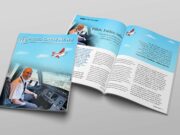
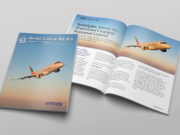

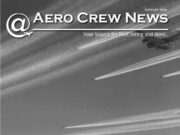
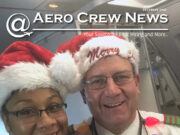
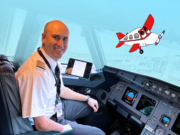


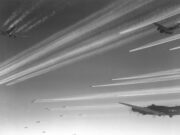

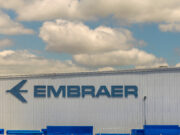
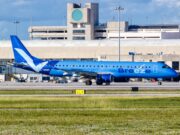

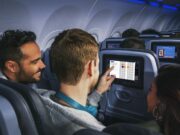
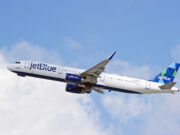


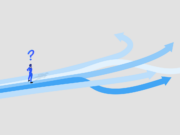



















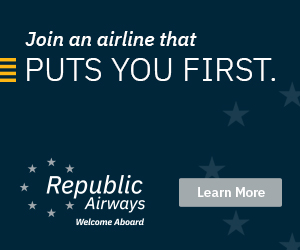







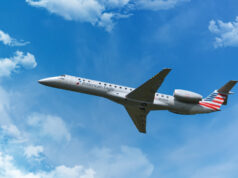
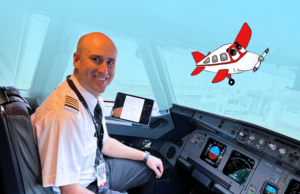
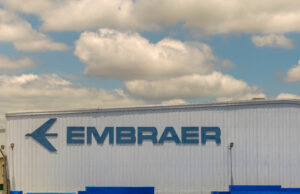




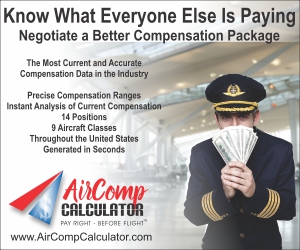

Can you direct me to your safety record beginning with the birth of the company?
Thanks
Dan M Morgan
Madison, MS, 39110